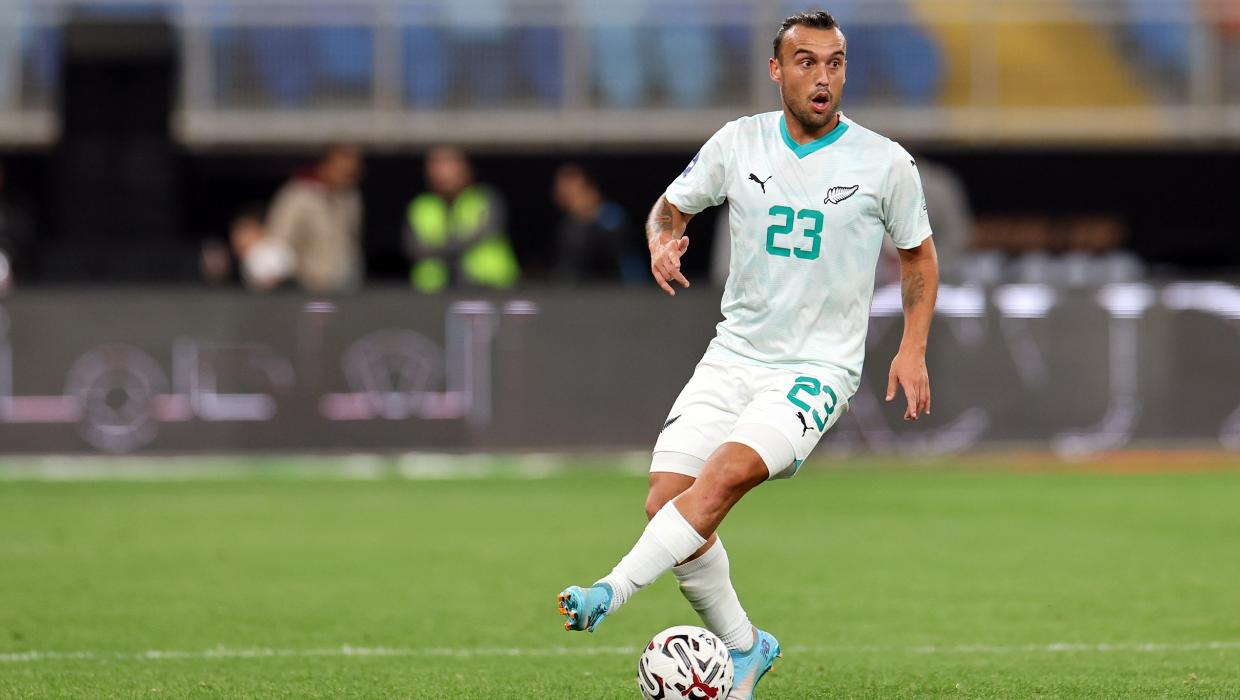Top Stories
Australian Football Faces Crisis Over Spot-Fixing Scandal

In a dramatic early morning operation on May 10, 2024, the New South Wales Police arrested New Zealand footballer Clayton Lewis on charges of betting corruption linked to a spot-fixing scheme involving three players from Macarthur FC. This incident has emerged as one of the largest sports corruption scandals in Australian history, raising serious concerns about integrity within the sport.
The police operation unfolded as a multi-agency strike team arrived at a Parramatta apartment building in Sydney’s western suburbs. Officers knocked on the door, announcing their presence with a search warrant. Once inside, they arrested Lewis and seized his electronic devices. Footage from the arrest shows him emerging from the apartment in casual attire, a stark contrast to the serious nature of the allegations against him.
During the investigation, known as Strike Force Beaconview, police uncovered evidence that players were allegedly paid up to $10,000 to deliberately concede yellow cards during matches. Assistant Commissioner Michael Fitzgerald addressed the media, emphasizing the long-term damage to the players’ reputations and careers, stating, “While $10,000 may seem a lot of money to a young sportsperson, it is incredibly insignificant when you consider the damage to their future.”
As the investigation progressed, it became clear that Lewis was not the mastermind behind the scheme. Court documents revealed that he was influenced by Ulises Davila, the captain of Macarthur FC, who allegedly orchestrated the scheme in collaboration with an organised crime figure. Davila’s involvement raises questions about the role of leadership and influence within sports teams, particularly in relation to vulnerable players.
The complexities of the case reveal a troubling narrative about gambling addiction in sports. Lewis’s lawyer, Gabrielle Bashir, highlighted that he was targeted and exploited due to his gambling issues, which left him susceptible to manipulation. Research has shown a concerning link between gambling addiction and match-fixing, especially among young athletes. Professor Declan Hill, an expert in sports corruption, noted, “The moment that sealed Lewis’ fate came in the 51st minute of the match,” pointing to the critical incident where Lewis received a yellow card after an aggressive foul.
The aftermath of the scandal has been devastating for Lewis. He has lost his professional standing and eligibility to play for the All Whites, having been consistently selected at various age levels prior to this incident. The repercussions extend beyond just the immediate loss of his career; Lewis now faces a potential lifetime ban from football, as noted by Football Australia.
After months of legal proceedings, Lewis and his former teammate Kearyn Baccus pleaded guilty to charges of engaging in conduct that corrupts a betting outcome. Their sentencing hearing took place at the Sydney Downing Centre, where the magnitude of their actions and the resulting consequences were discussed in detail.
The court’s decision ultimately resulted in a two-year community release order for both players, meaning that no formal conviction will appear on their records. Yet the judge acknowledged the gravity of their actions, noting the power imbalance between Lewis and Davila. Alongside the community service, Lewis was ordered to pay $10,000 in penalties and continue psychiatric treatment for gambling addiction and depression.
As the football community grapples with the ramifications of this scandal, the broader implications for Australian football are significant. The integrity of the sport is under scrutiny, with calls for a shift from punitive measures to restorative practices that address the root causes of gambling addiction among athletes.
The impact of this incident on Lewis’s life has been profound. During the court proceedings, he described the past two years as a “deeply humbling experience,” expressing sincere apologies to his club, the All Whites, and the football community. Yet, as his lawyer noted, the events of the last few years will “indelibly follow him for the rest of his lifetime.”
This scandal serves as a stark reminder of the vulnerabilities within sports and the need for comprehensive measures to protect athletes from exploitation and corruption. As the dust settles, the conversation around gambling addiction and its intersection with sport will undoubtedly continue, highlighting an urgent need for change within the industry.
-

 World3 months ago
World3 months agoTest Your Knowledge: Take the Herald’s Afternoon Quiz Today
-

 Sports3 months ago
Sports3 months agoPM Faces Backlash from Fans During Netball Trophy Ceremony
-

 Lifestyle3 months ago
Lifestyle3 months agoDunedin Designers Win Top Award at Hokonui Fashion Event
-

 Sports3 months ago
Sports3 months agoLiam Lawson Launches New Era for Racing Bulls with Strong Start
-

 Lifestyle3 months ago
Lifestyle3 months agoDisney Fan Reveals Dress Code Tips for Park Visitors
-

 World3 months ago
World3 months agoCoalition Forms to Preserve Māori Wards in Hawke’s Bay
-

 Health3 months ago
Health3 months agoWalking Faster Offers Major Health Benefits for Older Adults
-

 Politics3 months ago
Politics3 months agoScots Rally with Humor and Music to Protest Trump’s Visit
-

 Top Stories3 months ago
Top Stories3 months agoUK and India Finalize Trade Deal to Boost Economic Ties
-

 World3 months ago
World3 months agoHuntly Begins Water Pipe Flushing to Resolve Brown Water Issue
-

 Entertainment3 months ago
Entertainment3 months agoExperience the Excitement of ‘Chief of War’ in Oʻahu
-

 Science3 months ago
Science3 months agoNew Interactive Map Reveals Wairarapa Valley’s Geological Secrets









